Learning To Play The Game: The Mental Side Of Drum Corps
Learning To Play The Game: The Mental Side Of Drum Corps
Learning to play the mental game that is Drum Corps.
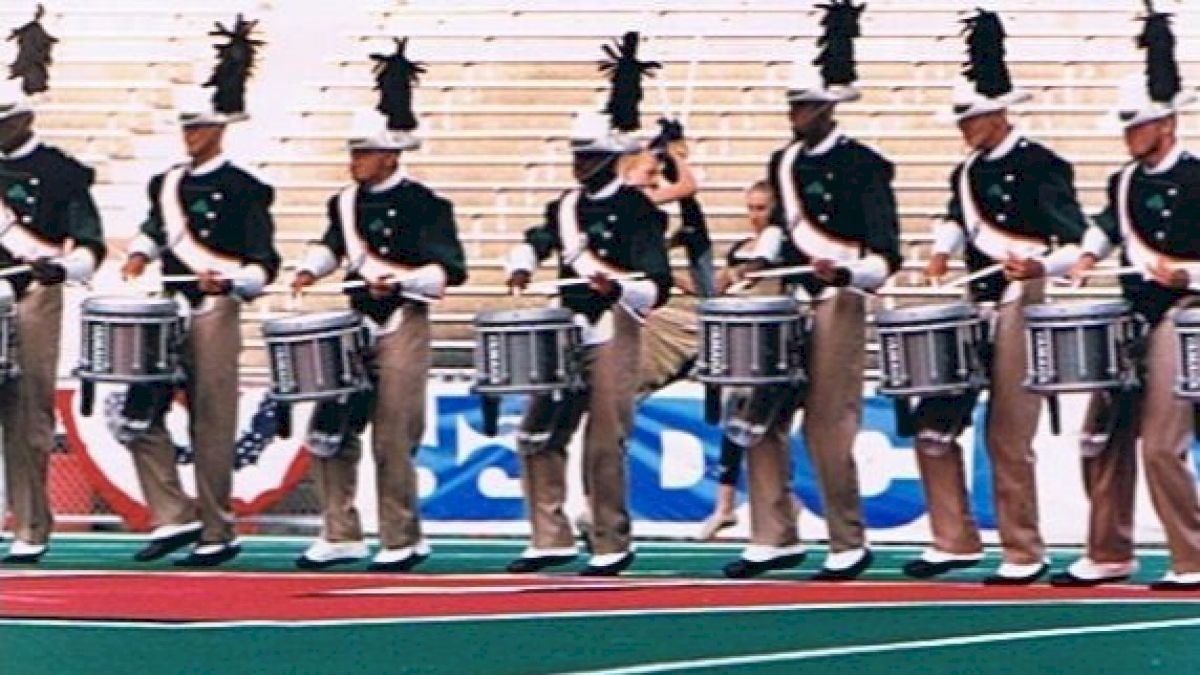
During the summer of 1999, I was 17 years old, marching in my first year of drum corps, and on a fairly routine basis getting my ass handed to me by the game. But my problem wasn't that I couldn't drum or march. My problem was I didn't know how to play the game that is drum corps.
The Game Begins
My first experience to the game was at my first weekend audition camp. It was a bad mix of being way too cocky and not knowing the game I was about to play.
That first full Saturday of intense rehearsals was eye opening. By the time the day was finished, I distinctly remember thinking to myself, "I'm done." My hand was literally bleeding from drumming so much. My feet were worn out, and my brain was dead. The game had quietly introduced itself to me without letting me know it even existed.
On Sunday, there were eight snare drums on stands along with another four drums on each side with pads on them. The staff shuffled players here and there before rehearsal started. I found myself on the last drum with a pad. Then, just before we started drumming again, the staff turned to the remaining 90-plus players auditioning for a snare spot and said, "Well, if you're not on a drum. You probably need to start learning music other than snare."
I went on to secure a spot on the snare line. Lucky for me, I was the only rookie out of the eight, and I was about to dive off into a world of mental challenges I did not know existed. Welcome, Player One.
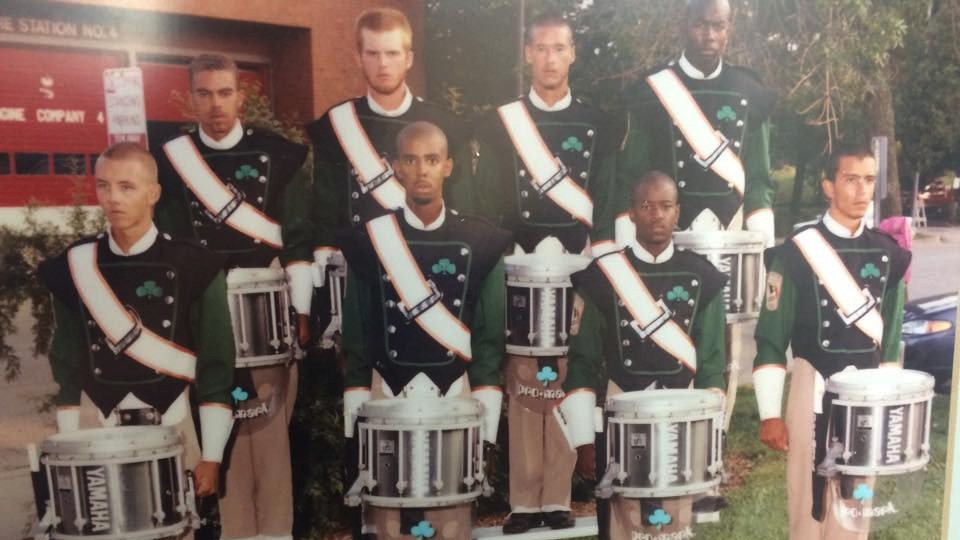
Pioneer Snareline 1999 (Clockwise beginning upper left): John Michael Hines, Myself, Dennis, Adam Hill, Carlos Botello, Brandon Estes, Phil Beale, Leonard Davanon
The Game Gets Real
The summer was going by so fast. There was so much information for my brain to process, and the exhausting rehearsals were causing me to shed weight off my body. But, we were doing well, working hard, and getting better. Then came the day of days for us.
I can still see the parking lot in my mind. We gathered near the tennis courts, behind the main gym, that morning outside of Cypress-Falls High School near Houston, Texas, for what seemed like another day of practice and a show that night. The Houston show was the last performance before the San Antonio Regional.
It was already hot as hell, probably approaching 95 degrees already that morning. We got to work with a nice run, push-ups, sit-ups, and crunches. By the time we finished the morning block, it was over 100 degrees, and the humidity of Houston was making it that much worse.
We were at the alma mater of one of the vet's in the line. As we set up to start drumming the normal warmup sequence of 8s, Montego Bay, Triplet Partials, Suburban Beat, Money, Cramps, etc., his younger classmates were gathering to watch us drum. He had given them word that the line was doing well and they should come check it out.
But for some reason that morning, I was not locked it. Not… at all.
Rule #1
Acknowledging you will make mistakes as to prevent further mistakes.
Getting over the idea that you will tick is the first step to correcting a problem.
Understanding that mistakes will happen and not letting them compound themselves into more mistakes is absolutely critical to your mental success in drum corps.
"Cut! Damn, Gilley. Drop 'em and run to the stop sign."
Short of breath -- and now full of thoughts like "What the hell is wrong with me?" -- we started drumming again. But almost immediately, "Cut!"
This time, I was feeling the pressure from my buddies in the line building as we ran, again, to the stop sign. The eyes from the crowd starting to focus solely on me as we arrived back to our drums.
Again, the thoughts of why is this happening and why am I making stupid errors on stuff I've played a 1,000 times before began swirling. Self-doubt is now leading to further mistakes because I'm hesitating. One mistake has now snowballed into numerous.
"Cut! Dude, seriously, what the hell is going on?! We don't have time for this. Run, to the car past the stop sign!"
Adding insult to injury, as we neared the target vehicle to return from the run, a driver climbed in and started to pull away. We have to sprint like an angry mob to collectively get the car to stop just so we can circle it before returning to our drums.
By the time lunch comes around, I'm running by myself so that the line can at least learn the new changes before ensemble rehearsal, and I'm now doubting everything I had worked so hard for since December.
Would we get to San Antonio and I just get cut right then? Midseason cuts are not exactly uncommon. Could this be the end of my drum corps career?
Recording of 1999 Pioneer Battery playing the drum break
Rule #2
Minimize errors by building your ability to focus over extended periods of time.
Making it through an entire day without ticking or breaking is possible. But just like crushing 73 hot dogs in one sitting (actual world record), you have to build up your mental and physical talents to that level. It won't happen over night.
It will take time, so don't think of trying to be perfect all day on day one. Think in terms of small chunks of time.
That fateful day was my turning point, and learning Rule No. 2 was the key to turning things around.
Following that morning's ass beating, I was sitting on the curb by myself eating lunch, physically drained, mentally beaten, and emotionally shot.
That's when the caption head who has been dishing out the morning beating sits down next to me. I'm preparing myself to hear the words, "You're done. I'm cutting you." But instead, I hear the complete opposite.
"Man, do you even know what I just did to you?" the instructor says as he approaches me.
My response, "What are you talking about?"
"I just played you. This morning, today, this summer, it's all a game man. It's a game of mistakes. But the more you're scared to make a mistake, the more you will make."
Finally, I understood the game.
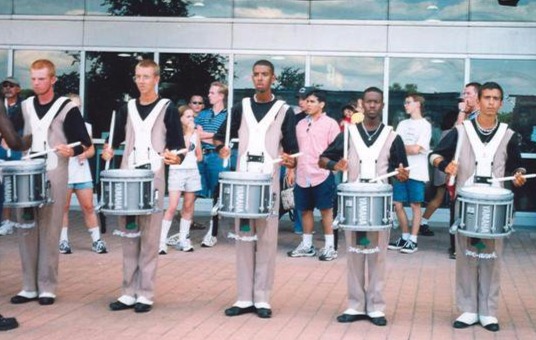
In the lot at the San Antonio regional in 1999
How to Play The Game
The way to win in this game is to build your ability to focus and not let past mistakes affect your future by dwelling on them. So, make small goals at first and get good, really good, at achieving those small goals.
Set a mental clock of two minutes, two reps, two runs or whatever makes sense for you. When that mental clock starts, your goal is to make no mistakes for that short time period you set.
If you fail to reach your goal, do not let that error compound itself into a deeper affliction. Keep resetting the clock or break it down even further. But once you've reached the point where you can consistently hit that goal, extend that clock farther out.
Make it five minutes, five reps, and then again begin building toward that goal of no mistakes for that longer period.
Eventually, these two- and five-minute goals will build into one- to three-hour blocks, and over time a full day of rehearsal will become your clock.
Results
Following that fateful morning block, I started to play the game much more effectively -- one small chunk at a time.
The rest of that day wasn't great. It was still one of our worst days of the summer. But I was at least battling and fighting knowing the rules of the game now.
Each rep of the music was my goal, then two-minute chunks, then five-minute chunks. And each time I hit the end of that time limit without a mistake -- RESET.
The next day was much better. I was much more mentally engaged and focused throughout rehearsal.
And the next show, San Antonio Regional, was the performance in which the light bulb not only came on but also exploded.
We had the lot of lives. From that point on, it was game over.
Related Content
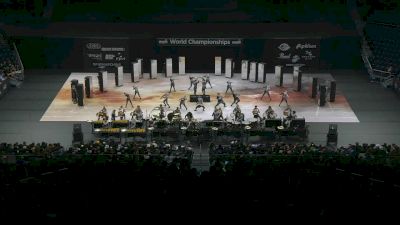 Replay: UD Arena (Highcam) - 2024 WGI Percussion/Winds World Championships | Apr 19 @ 9 AM
Replay: UD Arena (Highcam) - 2024 WGI Percussion/Winds World Championships | Apr 19 @ 9 AMApr 20, 2024
 Replay: UD Arena (Multicam) - 2024 WGI Percussion/Winds World Championships | Apr 19 @ 5 PM
Replay: UD Arena (Multicam) - 2024 WGI Percussion/Winds World Championships | Apr 19 @ 5 PMApr 20, 2024
 WGI Scores 2024: WGI World Championship Percussion, Winds Results
WGI Scores 2024: WGI World Championship Percussion, Winds ResultsApr 20, 2024
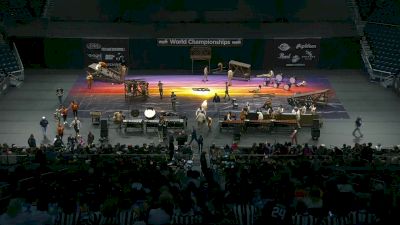 Spring-Ford HS "Royersford PA" at 2024 WGI Percussion/Winds World Championships
Spring-Ford HS "Royersford PA" at 2024 WGI Percussion/Winds World ChampionshipsApr 20, 2024
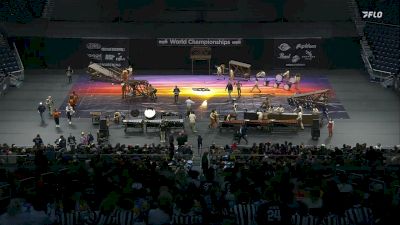 Spring-Ford HS "Royersford PA" at 2024 WGI Percussion/Winds World Championships
Spring-Ford HS "Royersford PA" at 2024 WGI Percussion/Winds World ChampionshipsApr 20, 2024
 Greenfield-Central HS "Greenfield IN" at 2024 WGI Percussion/Winds World Championships
Greenfield-Central HS "Greenfield IN" at 2024 WGI Percussion/Winds World ChampionshipsApr 20, 2024
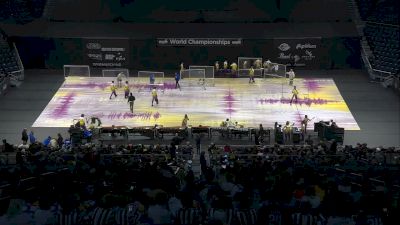 Greenfield-Central HS "Greenfield IN" at 2024 WGI Percussion/Winds World Championships
Greenfield-Central HS "Greenfield IN" at 2024 WGI Percussion/Winds World ChampionshipsApr 20, 2024
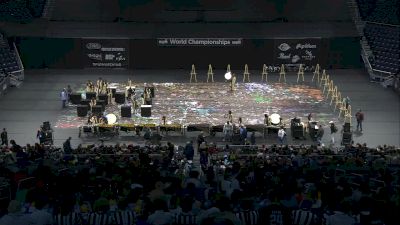 Pearl HS "Pearl MS" at 2024 WGI Percussion/Winds World Championships
Pearl HS "Pearl MS" at 2024 WGI Percussion/Winds World ChampionshipsApr 20, 2024
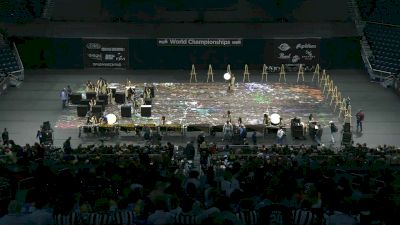 Pearl HS "Pearl MS" at 2024 WGI Percussion/Winds World Championships
Pearl HS "Pearl MS" at 2024 WGI Percussion/Winds World ChampionshipsApr 20, 2024